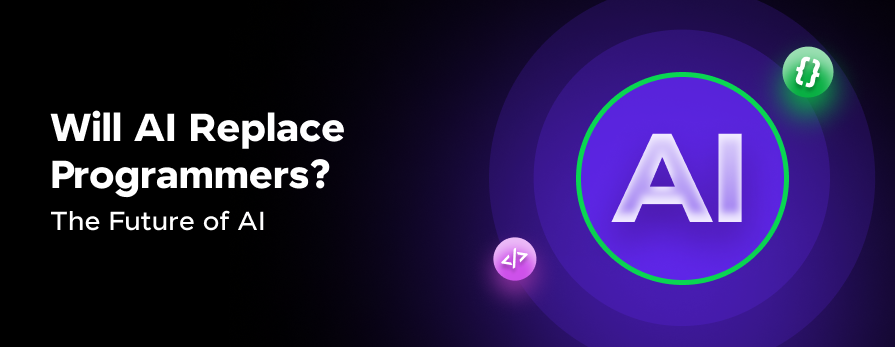
Will AI Replace Programmers? The Future of AI
Feb 18, 2025 5 Min Read 3464 Views
(Last Updated)
In an era where technological advancements are rapidly transforming industries, one question that has sparked considerable debate is: will AI replace programmers?
This question not only touches on the capabilities of AI, including its proficiency in languages like Python but also probes into the future of software development as a profession.
As AI continues to evolve, understanding its impact on programming and the role of programmers becomes crucial.
This article delves into the current state of AI in software development, exploring whether silicon-based brains can truly match or even surpass the creativity and problem-solving abilities of their human counterparts.
Table of contents
- So, Will AI Replace Programmers?
- 1) The Current State of AI in Software Development
- 2) How AI is Transforming the Role of Programmers
- 3) The Potential and Limitations of AI in Programming
- 4) Human Versus AI in Software Engineering
- Concluding Thoughts...
- FAQs
- Which job will AI not replace?
- What is the future of programming?
- What jobs are at risk from AI?
- Can AI do coding?
So, Will AI Replace Programmers?
Let’s discuss at length based on a few major factors:
1) The Current State of AI in Software Development
1.1) Definition and Scope of AI
- Artificial Intelligence (AI) and Machine Learning (ML) are pivotal in today’s technological advancements, often used interchangeably though they serve different functions.
- AI encompasses a broader spectrum where computers are programmed to perform tasks and solve problems in a human-like manner.
- On the other hand, ML is a subset of AI focused on using algorithms and data to identify patterns and make decisions.
- This distinction is crucial as it underpins the varied applications of AI and ML across sectors like healthcare, finance, and notably, software development.
1.2) Prominent AI Tools in Current Use
- The integration of AI into software development has revolutionized how developers write, debug, and maintain code.
- Tools such as GitHub Copilot and OpenAI Codex have become indispensable by offering code suggestions and automating routine tasks.
- GitHub Copilot, for example, assists by suggesting entire blocks of code, streamlining the coding process significantly.
- Similarly, OpenAI Codex translates natural language into code, enhancing productivity.
- These tools exemplify how AI is becoming a core component of software development environments, aiding in everything from code completion to error detection.
Also Explore: Best AI Tools for Students 2024
1.3) Impact of AI on Software Development Practices
- AI’s influence on software development extends beyond simple code generation. It is reshaping development practices by automating complex processes and enhancing the capabilities of developers.
- AI tools are now able to handle tasks that once required extensive human intervention, such as project management, error scanning, and even the preliminary stages of design.
- This shift not only speeds up the development process but also allows developers to focus on more strategic tasks that require human ingenuity.
- Moreover, AI’s role in predictive modeling and decision-making processes cannot be understated. By analyzing vast amounts of data, AI tools can forecast project timelines, budget requirements, and potential project hurdles, significantly improving project management and delivery.
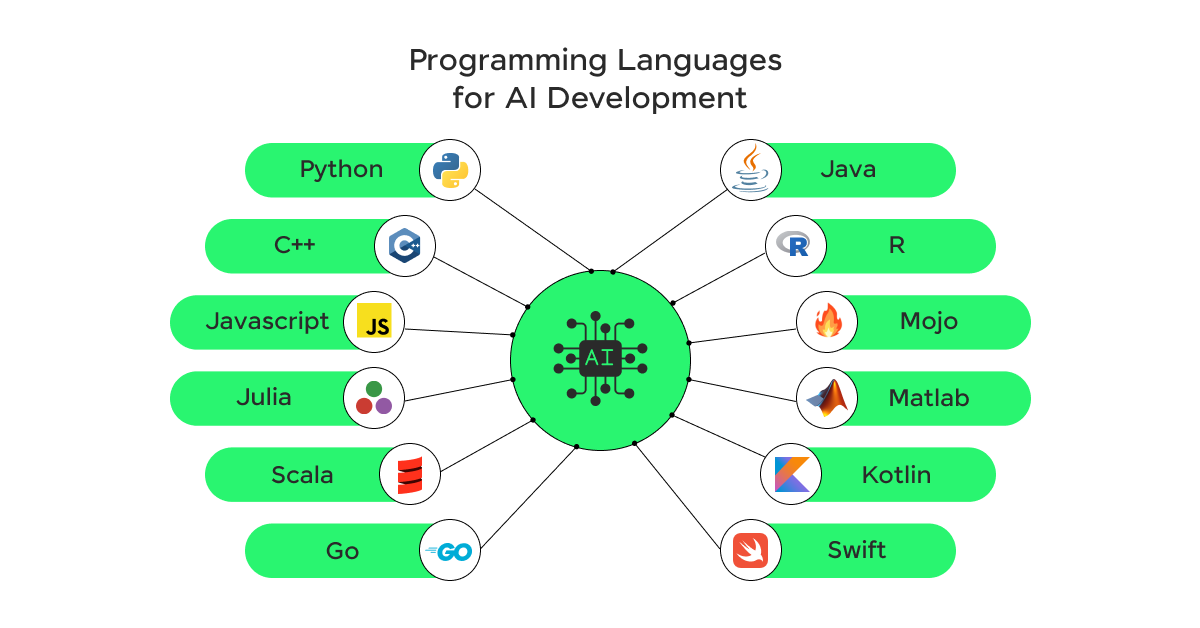
Incorporating these AI advancements into software development not only optimizes operations but also introduces a new level of efficiency and innovation, setting the stage for future developments in the field.
Before moving forward, make sure you understand the basics of Artificial Intelligence & Machine Learning, including algorithms, data analysis, and model training. If you want to learn more, join GUVI’s AI & Machine Learning Courses with job placement assistance. You’ll discover important tools like TensorFlow, PyTorch, scikit-learn, and others. Plus, you’ll work on real projects to gain practical experience and improve your skills in this fast-growing field.
2) How AI is Transforming the Role of Programmers
2.1) Shift from Coding to Conceptualization
- As AI’s capabilities in generating code advance, your role as a programmer is shifting significantly from writing detailed code to focusing on higher-level conceptualization and problem-solving.
- With tools like OpenAI’s Codex and GitHub Copilot, much of the routine coding can be automated, allowing you to concentrate on designing architectures and solving complex problems that AI cannot handle alone.
- This shift not only optimizes the development process but also elevates the importance of strategic thinking within programming roles.
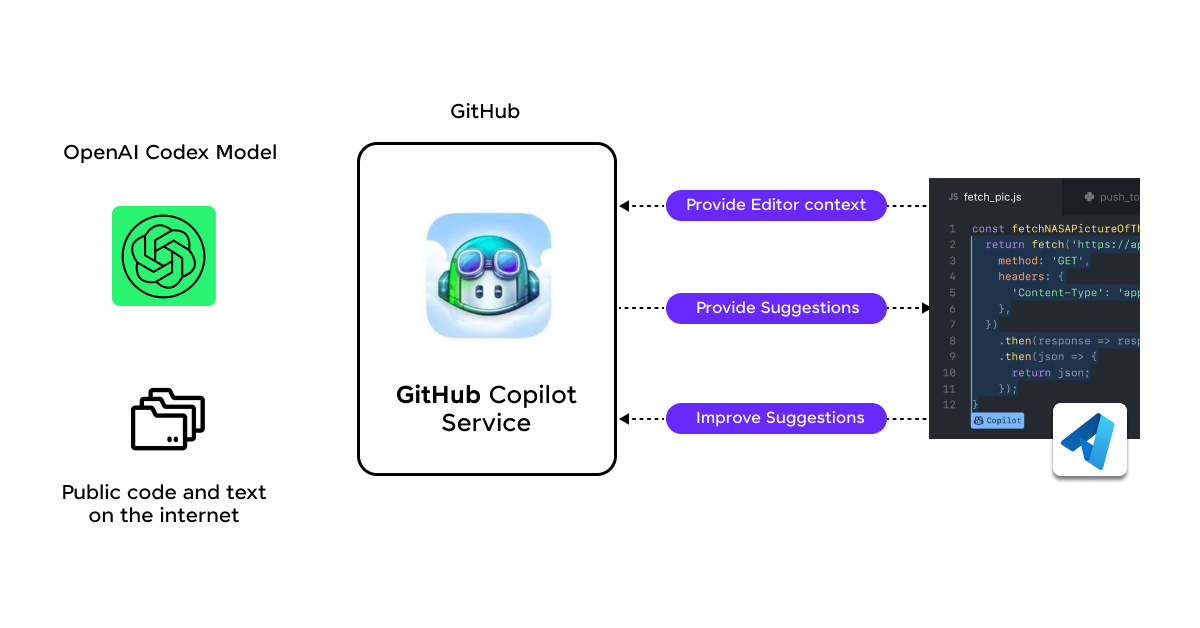
2.2) Enhancing Productivity and Creativity
- AI tools are not just about efficiency; they’re also enhancing creativity in the programming process. By automating mundane tasks, AI enables you to dedicate more time to creative aspects of software development, such as UI/UX design and innovative feature creation.
- For example, generative AI can rapidly prototype different UI designs, providing a range of options to refine and iterate upon, thus speeding up the design process and enhancing the overall user experience.
- This integration of AI allows for a more dynamic approach to development, where you can experiment and innovate more freely.
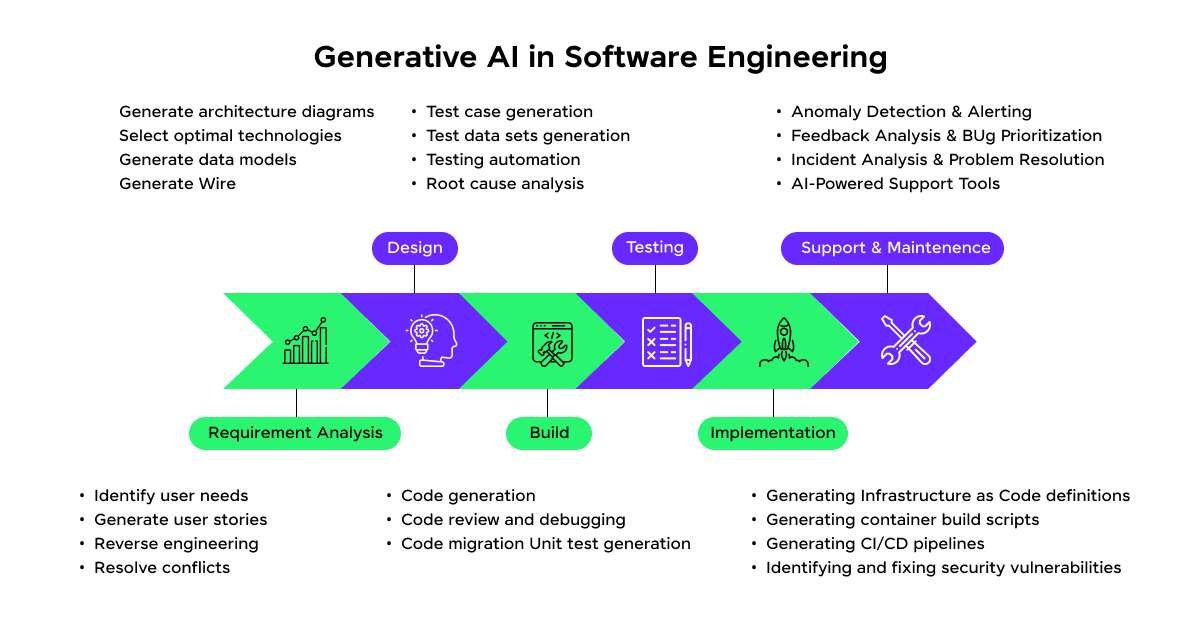
2.3) Future Skills Required by Programmers
- As the landscape of programming evolves, the skill set required by programmers is also transforming. You’ll need to become proficient in AI and machine learning technologies to stay relevant in your field.
- Understanding AI tools and their capabilities will be crucial, as you’ll need to guide these tools to achieve optimal outcomes.
- Additionally, skills in data analysis, system architecture, and security will become more critical as AI integrates deeper into development processes.
Also, Know 7 Benefits of AI-Powered Learning Environments
Table: Key Skills for Future Programmers
| Skill Area | Description |
|---|---|
| AI and Machine Learning | Understanding and applying AI algorithms and machine learning models to enhance development processes. |
| System Architecture | Designing robust and scalable system architectures that integrate AI tools effectively. |
| Data Analysis | Analyzing and interpreting large datasets to improve software functionality and user experience. |
| Security | Ensuring software security and integrity, especially when deploying AI-driven solutions. |
| Collaborative Coding | Working effectively in team settings, utilizing AI for collaborative coding and peer reviews. |
Embracing these changes and preparing for a future where AI is a fundamental part of programming will ensure that you remain a valuable asset in the tech industry, capable of tackling the challenges of tomorrow’s software development landscape.
Also Read: Advantages and Disadvantages of AI: A Comprehensive Guide [2024]
3) The Potential and Limitations of AI in Programming
3.1) What AI Can and CanNot Do
- Artificial Intelligence (AI) has made significant strides in the field of programming, demonstrating an ability to automate repetitive tasks and generate code based on predefined patterns or rules.
- However, AI’s capability to replicate the creative and intuitive nature of human programming remains limited.
- While AI can efficiently handle tasks that follow a set pattern, complex problem-solving, understanding user requirements, and implementing novel solutions are areas where human programmers excel.
- AI’s current state allows it to support programmers by handling mundane coding tasks, thereby freeing up human programmers to focus on more strategic and innovative activities.
3.2) Case Studies: Successes and Failures
- AI’s integration into programming has seen varied outcomes, highlighting its potential and limitations.
- For instance, IBM’s Watson for Oncology was designed with the ambitious goal of revolutionizing cancer treatment.
- However, it fell short due to the reliance on hypothetical rather than real patient data, leading to unsafe treatment recommendations.
- Similarly, Microsoft’s Tay chatbot became infamous overnight due to its inability to filter and manage inappropriate content, turning it from a friendly chatbot to a purveyor of offensive statements.
- On the success side, Cisco’s use of machine learning to create self-healing networks showcases AI’s potential to enhance network management and security significantly.
- These examples illustrate that while AI can be a powerful tool in programming, its effectiveness is heavily dependent on the quality of the underlying data and the specific use case.
Also Explore: How Is AI Transforming DevOps? Check 7 Intriguing Ways!
3.3) Ethical and Practical Considerations
- The integration of AI into software development raises significant ethical and practical considerations. One major concern is the transparency of AI algorithms.
- As AI systems become more complex, it becomes increasingly difficult to understand how decisions are made, which is crucial for maintaining trust and accountability in AI-driven systems.
- Moreover, AI algorithms can perpetuate and even amplify existing biases if the training data is biased.
- This can lead to discriminatory practices, as seen with Amazon’s recruitment tool, which favored male candidates due to biased training data.
Table: Ethical Considerations in AI Programming
| Consideration | Description |
|---|---|
| Transparency | Ensuring the operations of AI systems are understandable to developers, stakeholders, and users. |
| Bias and Fairness | Addressing and mitigating biases in AI algorithms to prevent discriminatory outcomes. |
| Accountability | Establishing clear responsibilities for the outcomes of AI decisions, particularly in adverse situations. |
| Data Privacy | Implementing robust measures to protect the privacy of the data used by AI systems. |
| Inclusivity | Developing AI systems that are accessible and beneficial to a diverse range of users. |
These considerations highlight the need for a balanced approach to AI development, one that enhances its capabilities while managing its limitations and ensuring ethical use.
As AI continues to evolve, the collaboration between AI systems and human oversight remains crucial to harnessing AI’s full potential responsibly.
Must Read: Exploring the Influence of AI and Machine Learning in Full Stack Development [2024]
4) Human Versus AI in Software Engineering
4.1) Strengths of Human Intuition and Creativity
- Human intuition and creativity remain unmatched in the realm of software engineering. Your ability to intuitively bridge the gap between vast data sets and real-world applications is invaluable.
- This human touch enables the development of technically effective solutions and resonates on a more personal level with users.
- For instance, while AI can suggest data-backed options, it is your intuition that aligns these decisions with the company’s long-term vision, fostering innovation and strategic foresight.
- Moreover, the innate human capacity for understanding emotions plays a critical role in areas like customer service and team management, where empathy and emotional intelligence are paramount.
- These are areas where AI, despite its advances, cannot fully replicate the human experience.
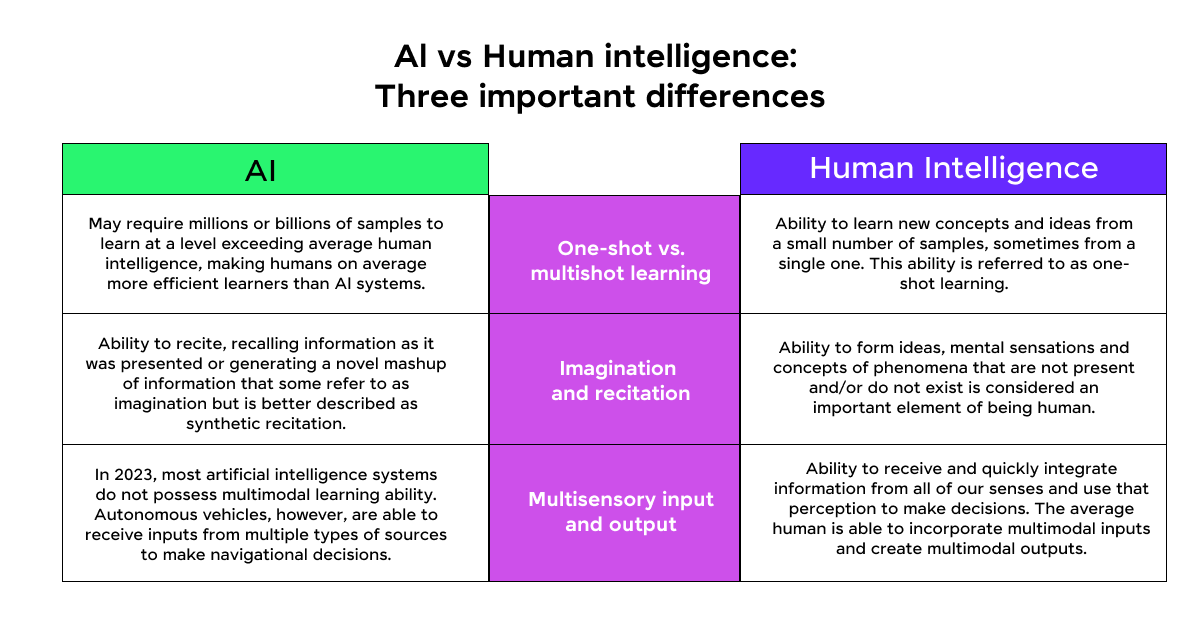
4.2) Areas Where AI Surpasses Human Capabilities
- AI’s strength lies in its ability to process and analyze large volumes of data at speeds unattainable by humans.
- For example, in tasks like image recognition and complex calculations, AI systems can perform analyses and generate results with precision and speed that far exceed human capabilities.
- The efficiency of AI in repetitive and data-intensive tasks frees up your time, allowing you to focus on more complex and creative problem-solving.
Must Read: Artificial Intelligence vs Human Intelligence: A Definitive Comparison | 2024
Table: Comparison of AI and Human Capabilities in Software Engineering
| Capability | AI Strengths | Human Strengths |
|---|---|---|
| Data Processing | High-speed, large-scale data analysis | Intuitive insights, contextual understanding |
| Problem-Solving | Efficient in predefined patterns and tasks | Creative solutions, adaptability |
| Learning | Rapid assimilation of structured data | Ability to learn from diverse and unstructured experiences |
| Emotional Intelligence | Limited to programmed responses | Deep understanding of human emotions and social cues |
4.3) Finding the Right Balance
- The key to maximizing the benefits of AI in software engineering lies in finding the right balance between leveraging AI’s computational abilities and harnessing human creativity and intuition.
- You can create a synergistic work environment by viewing AI as a tool that enhances rather than replaces human capabilities.
- This balance allows AI to handle the labor-intensive aspects of data analysis and routine testing, while you focus on areas requiring human insight such as strategic planning, design, and user experience.
- This collaborative approach improves efficiency and ensures that the products developed are both technologically advanced and deeply human-centric.
- By continuously refining this balance and fostering dynamic interaction between human and AI capabilities, the field of software engineering can advance in a manner that respects and amplifies both sets of strengths.
Begin your Artificial Intelligence & Machine Learning journey with GUVI’s Artificial Intelligence & Machine Learning Courses. Learn essential technologies like matplotlib, pandas, SQL, NLP, and deep learning while working on real-world projects.
Concluding Thoughts…
Exploring the evolving relationship between AI and programmers reveals a future where collaboration, rather than replacement, defines the intersection of artificial intelligence and human ingenuity.
Throughout this article, we established that while AI accelerates the efficiency of coding tasks through tools like GitHub Copilot and OpenAI Codex, it also opens avenues for programmers to shift focus toward more strategic, creative, and conceptual work that surpasses the current capabilities of AI.
This symbiotic relationship underscores the ongoing importance of human intuition and creativity in driving innovation within the realm of software development, even as the computational powers of AI systems continue to expand.
As we look ahead, the true potential of software development lies in harnessing the unique strengths of both AI and human programmers to foster an environment of co-creation and innovation.
By preparing for a future where skills in AI and machine learning technologies are indispensable, programmers can ensure their relevance and contribution to the field.
Also Read: Best Product-Based Companies for AI Engineers in 2024
FAQs
AI is unlikely to replace jobs that require high levels of creativity, emotional intelligence, and complex human interactions, such as psychologists, artists, and senior management roles.
The future of programming involves increased automation with AI assisting in code generation, improving efficiency, and making programming more accessible to non-experts, while also emphasizing new fields like quantum computing and AI development.
Jobs that involve repetitive tasks, data entry, basic customer service, and routine manufacturing processes are most at risk from AI and automation.
Yes, AI can assist with coding by generating code snippets, debugging, and optimizing existing code, though it currently requires human oversight and direction for complex programming tasks.















![Spring Boot AI: A Beginner’s Guide [2025] 6 spring boot](https://www.guvi.in/blog/wp-content/uploads/2025/07/spring-boot.webp)
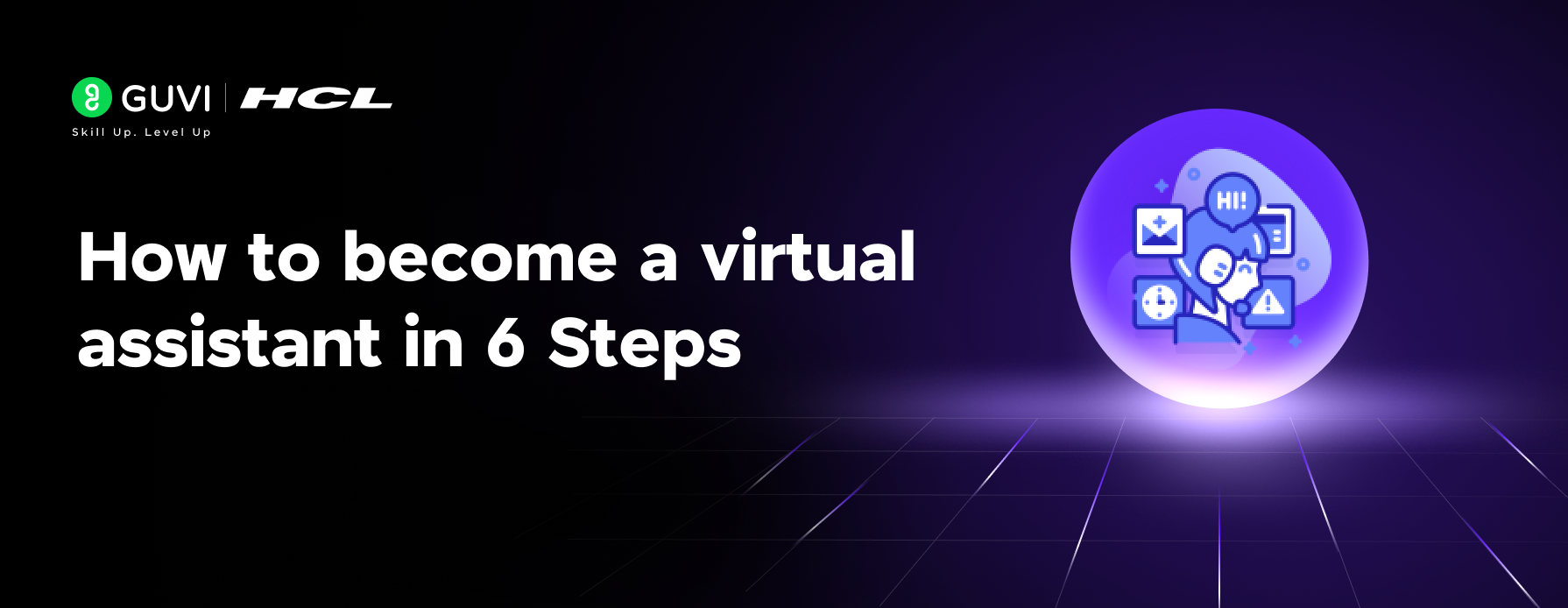



![A Beginner’s Guide to Artificial Intelligence, LLMs, and Prompting [2025] 11 artificial intelligence](https://www.guvi.in/blog/wp-content/uploads/2025/07/artificial-intelligence.webp)
![SVM in Machine Learning: A Beginner's Guide [2025] 12 svm](https://www.guvi.in/blog/wp-content/uploads/2025/07/svm.webp)
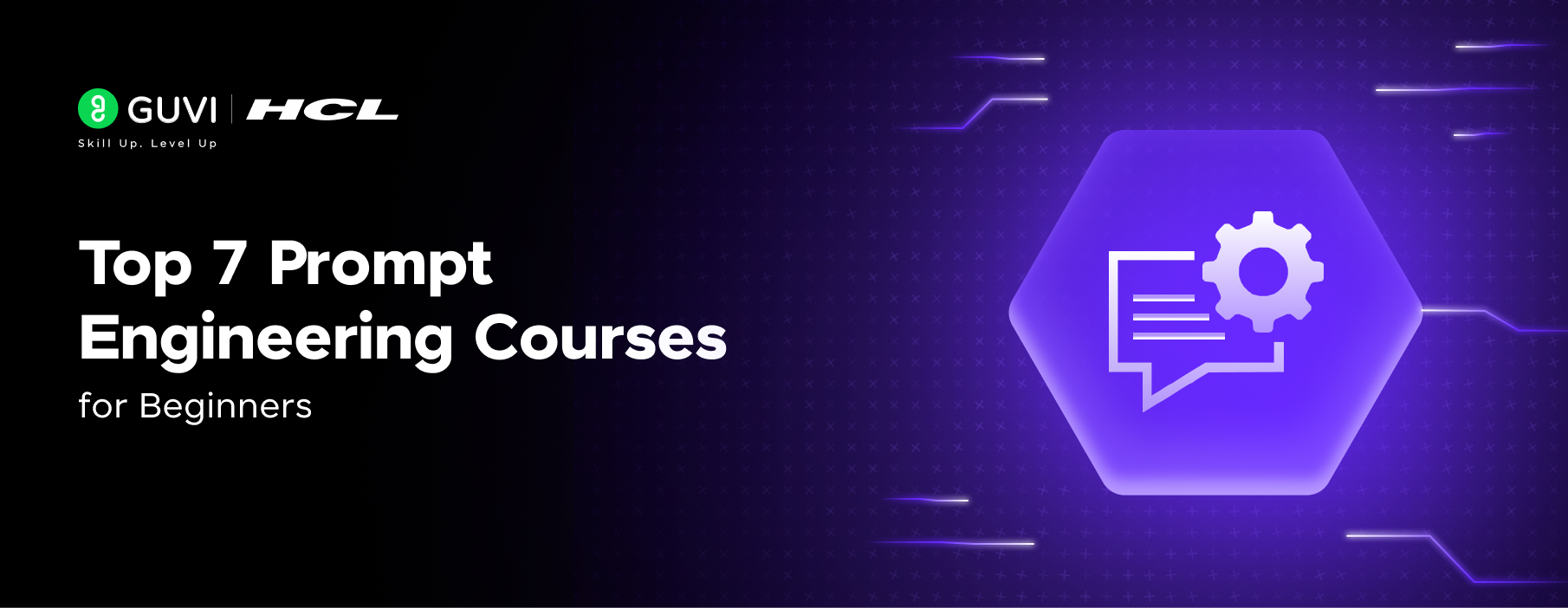
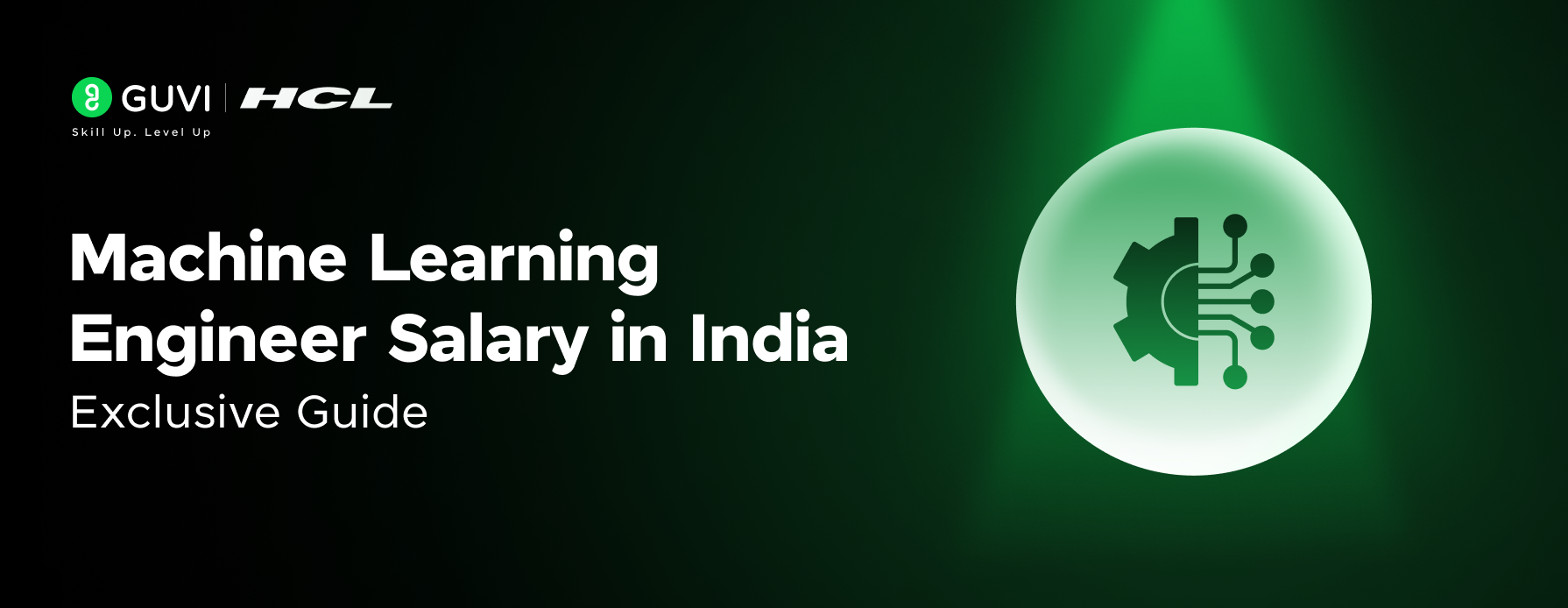

Did you enjoy this article?